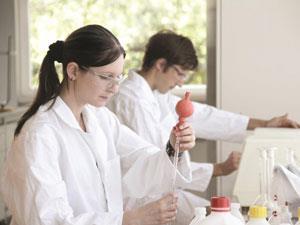Giving greater autonomy in practical work

A US university has overhauled its chemistry laboratory curriculum to give undergraduates the opportunity to design and conduct their own research while learning standard techniques. Each cohort of students picks up the research where the previous left off, resulting in a programme that evolves continually as the students explore. The new curriculum, which has run for three years, has already delivered an original research journal paper on the biomineralisation of gold, a $25,000 (£16,261) grant from NASA and a measurable boost in student satisfaction.
Matthew Hartings and colleagues at American University (AU) in Washington DC, US, were faced with two recommendations from an American Chemical Society accreditation of university courses: they should offer the advanced courses more frequently and increase the laboratory hours requirement. But covering all of the advanced courses proved difficult given the relatively small number of faculty members (six on tenure track) and students majoring in chemistry (eight seniors and 11 juniors in the 2011–2012 academic year) plus a university requirement that each class involve at least six students.
The solution was to try something radically different. The curriculum uses an integrated approach, published in the Journal of Chemical Education, in which lab skills are taught within the context of several disciplines and structured around an instructional problem. This is combined with an inquiry-led approach, which gives students greater autonomy.
In the first semester, the faculty introduce students to a project and relevant techniques normally covered in an advanced lab course, the project coming from the research conducted by the students from the previous academic year. In the second semester, the students design and implement a set of experiments meant to advance the research in a direction of their choice.
‘Students are responsible for the direction the project goes in from year to year,’ says Matthew, an associate professor in the chemistry department. ‘We’re putting education directly into the hands of our students and achieving better educational outcomes than any lecture or traditional laboratory could.’









No comments yet